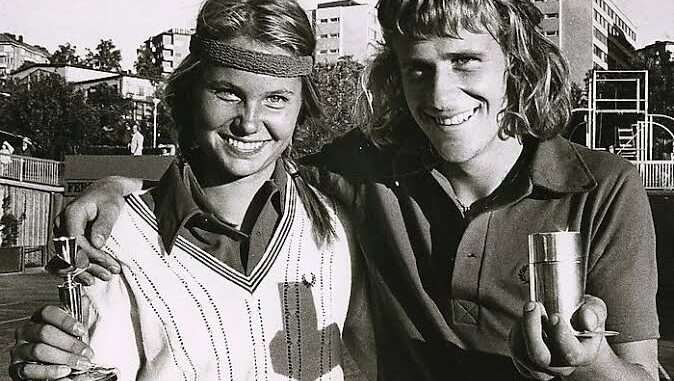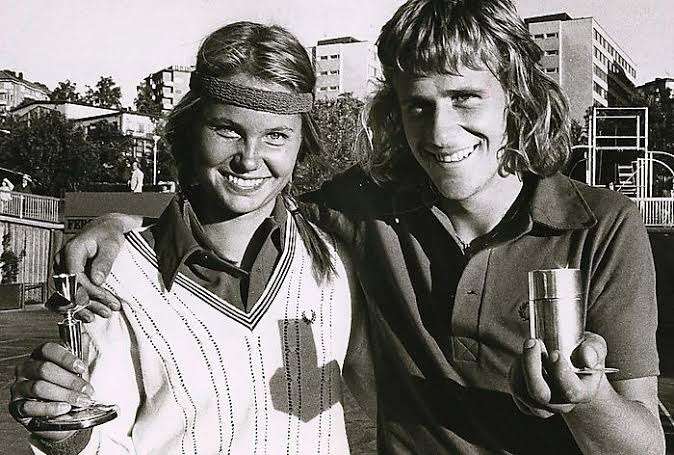
In a touching reflection on his late friend, tennis legend Björn Borg recently shared memories of Ted Gärdestad’s early days—long before the Swedish singer became a household name in music, and when the two were simply young boys chasing tennis balls on sunlit courts. Borg and Gärdestad, who grew up playing tennis together in Sweden, shared not only a love for the sport but also a close friendship that would span the years, even as their lives took dramatically different paths.
According to Borg, even back then, Ted’s heart was already leaning toward a different kind of performance.
> “Ted was always singing—always,” Borg recalled with a fond smile. “Even during our matches, he’d hum melodies between points or sing a few lines while we were rallying. Tennis was something he was good at, but music was who he was.”
While both were talented young athletes, Ted’s energy on the court often carried a rhythm of its own. “He had a natural grace when playing,” Björn said, “but you could tell he wasn’t just thinking about the game—he was thinking in melodies, verses, feelings. You’d hear him humming something, and then a few months later that tune would be a hit on the radio.”
That intuitive connection to music would eventually lead Ted to make a life-changing decision. In his teenage years, he chose to 
Yet it proved to be the right one.
By the early 1970s, Ted Gärdestad had become one of Sweden’s most beloved musical artists, known for his emotive vocals and poetic lyrics. Songs like *”Jag vill ha en egen måne”*, *”Sol, vind och vatten”*, and *”Satellit”*—which even represented Sweden in Eurovision—cemented his legacy in Scandinavian pop music.
Borg, who would go on to win multiple Grand Slam titles and become a global icon in tennis, has often spoken of his admiration for Ted—not only for his musical talent, but for his courage to follow his heart.
> “He followed his passion, even when it wasn’t the easiest path. And that takes real strength,” Borg said. “I always admired that in him.”
Ted Gärdestad’s life was also marked by profound struggles, especially with mental illness, which he battled for much of his adulthood. His tragic passing in June 1997 left a deep void in Sweden’s cultural landscape. But for those who knew him, and for the generations who continue to discover his music, Ted remains a symbol of creative purity and emotional honesty.
Björn Borg’s memory of their youthful tennis days—one friend chasing trophies, the other chasing melodies—offers a moving glimpse into the early life of an artist whose voice still echoes, even decades after his death.
> “He might have left tennis,” Borg said softly, “but he never stopped playing. Music was his court.”
Would you like this article formatted for a publication or social media post as well?
Leave a Reply